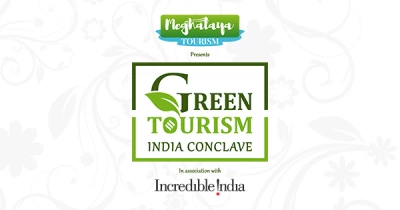
The first Global Responsible Tourism Summit, organised by Kerala Tourism at Kumarakom, Kerala, offered an excellent opportunity to the Arunachal Pradesh tourism department to share the department’s initiatives for the promotion of community-based tourism and responsible tourism “as a tool to empower rural communities.” The spotlight was also directed to the initiative of documenting the intangible cultural heritage of the state.
The state has recognised the growing importance of sustainable tourism practices which will resonate deeply with the responsible tourist on many counts.
Homestays play an important role in encouraging community participation in tourism; they also serve as an enabling platform for locals to get direct benefits from it. They also create employment opportunities in the region and encourage the locals to make concerted efforts to preserve their traditional culture and provide a chance to interact with different cultures.
With tourism slowly but steadily making deeper inroads, locals are growing increasingly aware of its negative impacts. The industry is now strongly veering towards Responsible Tourism, which will be pivotal to protecting Arunachal’s astonishing biodiversity and rich cultural heritage.
Chullyu, a small village in the Lower Subansiri district, for example, has been adopted under the Responsible Tourism initiative for encouraging community-level activities and developing strong tourism-community links to raise the standard of living and empower the marginalised.
Mechuka, an unexplored gem of a place in Arunachal Pradesh, is home to the Mahayana Buddhism practicing Memba tribe. Other residents include the Adis (Bokar, Libo, Ramo) and Tagin tribesmen. This utopian valley is a mosaic of verdant splendour marked by rolling meadows protected by snow-clad pinnacles. A modest six-room homestay called ‘Potala Homestay’ is a wonderful base for exploration of these sublime environs. Norbu Naksang and his wife Yangjom Kigar have worked closely with the tourism department to enhance both the community and visitor experience while developing the valley as a tourism destination. In a place as remote as this, it has been acknowledged that tourism is the only industry that can flourish here. Though there are no hotels the locals have set up a string of homestays and allied activities. Shops in the market are mostly owned by Membas, the Adis and the Tagins run the wet markets.
Norbu is President of Mechuka Eco-Tourism and Conservation Society (MECS), an NGO protecting and promoting the age-old socio-economic and cultural heritage of Mechuka to create awareness among the locals and the tourists engendering an eco-friendly environment. In 2015, the Arunachal government introduced the restructured ‘Chief Minister’s Paryatan Vikas Yojana scheme to materialise the vast untapped Adventure Tourism potential in Mechuka. The number of homestays since 2015 under the scheme jumped from 5 to 45 registered and several more unregistered ones. The Mechuka Eco-tourism and Conservation Society (MECS) has been a torchbearer of all sustainable eco-tourism activities in Mechuka.
Dirang, located in the West Kameng district is an attractive spot for eco-friendly explorations. Travellers can stay over at a traditional Brokpa (shepherd) hut to go exploring its monasteries, clearwater rivers, and walking trails. Of interest here also is the Yak Research Centre which focuses on ideating and analysing methods to improve yak products. Visits to the Tippi Orchard for its delicious oranges and the Sangti Valley for its scenic views and plenitude migratory birds such as rare woodpeckers or the Black-Necked Crane are must-have experiences.
Thebang village, near Dirang, is the home of the Monpa tribesmen. An important initiative, because of the adverse effects of global warming on their surrounds, was the Thembang Bapu Community Conserved Area (TBCCA) management committee set up with the help of WWF-India. Simultaneously they also set in place the community-based tourism and livelihood program through village homestays. This meant visitors could avail of a range of services provided by the villagers themselves, including homestays, and traditional food in eateries, while others acted as trekking guides, porters or even performing in cultural programmes. Thembang village which is also the starting point and the base camp of the Bailey Trail trek in the Himalayas has also inspired the Monpas of Zemithang village in Tawang district to adopt similar community-based projects to protect nature and also promote tourism.
Jia village, just 12km away from the district headquarters of Roing, offers visitors an excellent experience at the no-fuss Jia Organic Eco Resort. The eco-friendly traveller will delight in bamboo and metal cottages and camping tents, set up amidst organic tea gardens and fields of maize, ginger, and mustard.
Run by a private entrepreneur, who’s passionate about Arunachal’s natural heritage, it serves as a delightful base for the traveller to explore the nearby scenic spots and archaeological sites. Unmissable experiences can be enjoyed at Bhismaknagar, Arunachal’s oldest archaeological and mythological site. It is believed to be the remnants of the capital of Raja Bhismaka, father of Rukmini, Lord Krishna’s wife. The other place worthy of exploration from Jia is the Mehao Wildlife Sanctuary and Lake, the ancient habitat of the rare Red Panda, Hollock Gibbon, amongst other exotic creatures of the Indian jungles.
Be a part of the Green Tourism India Conclave. Click here.

